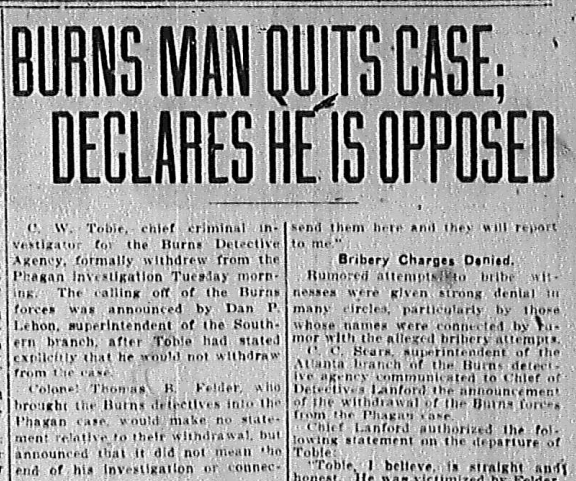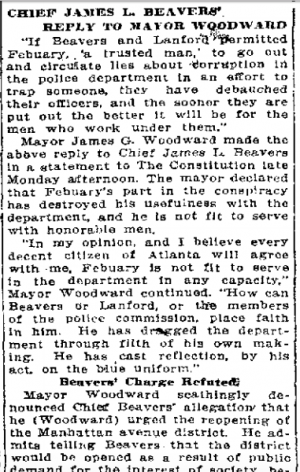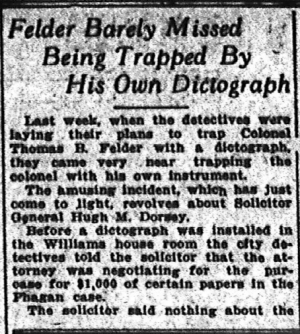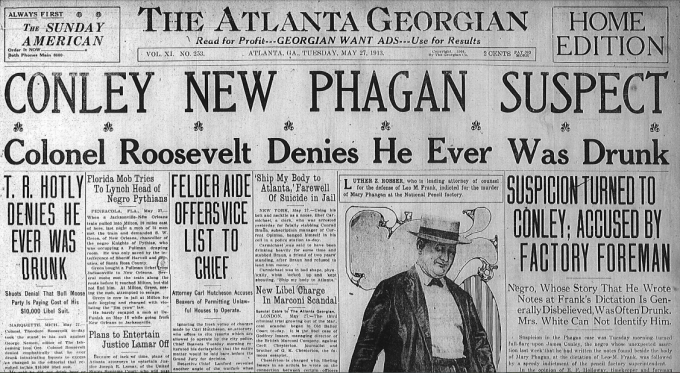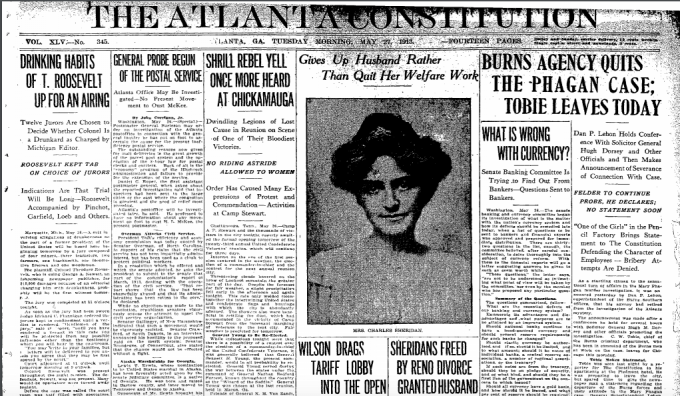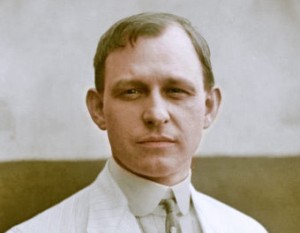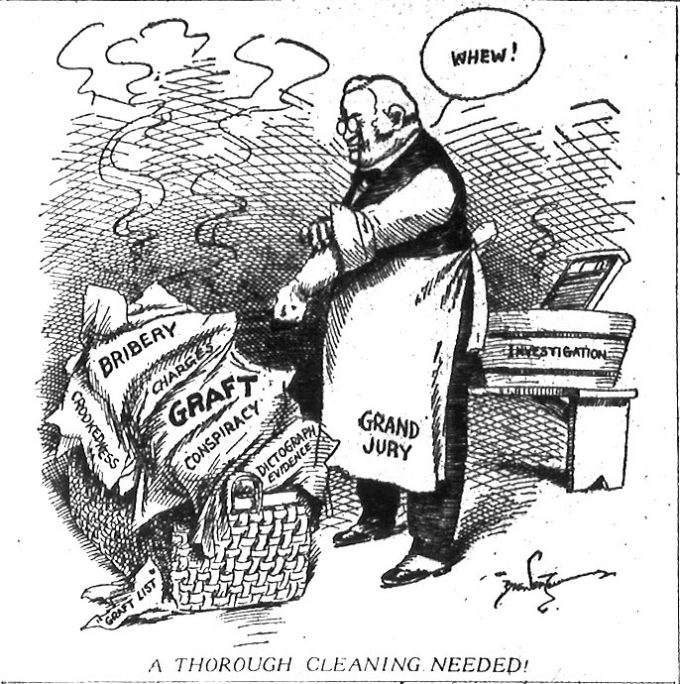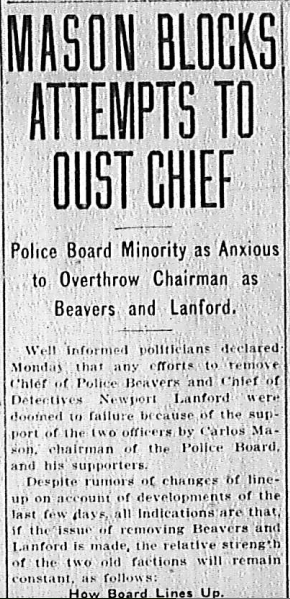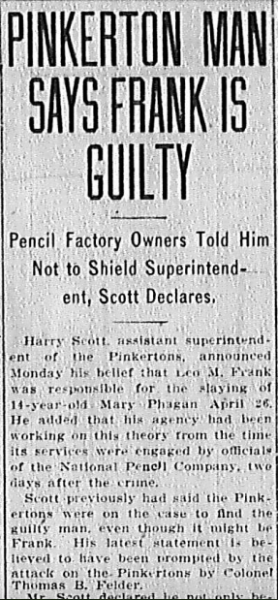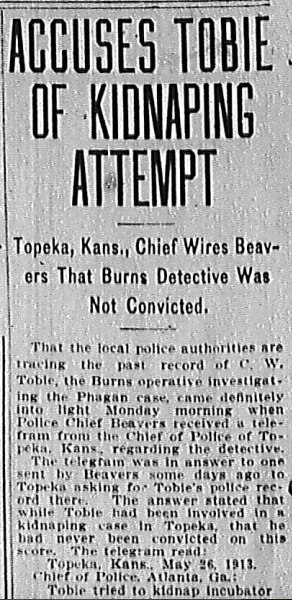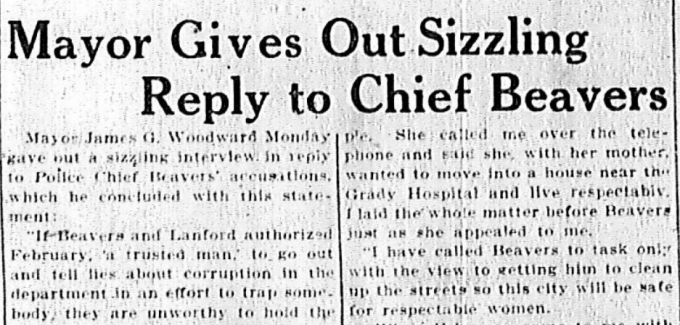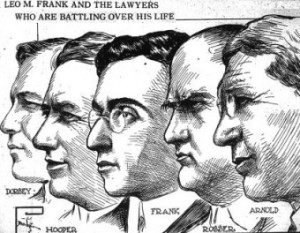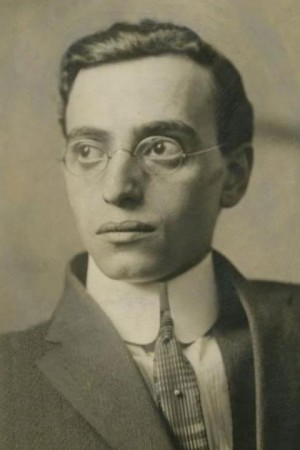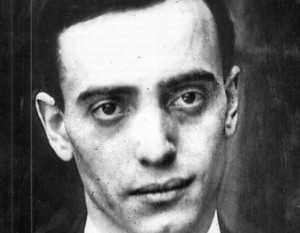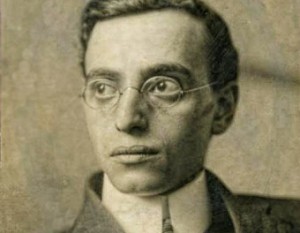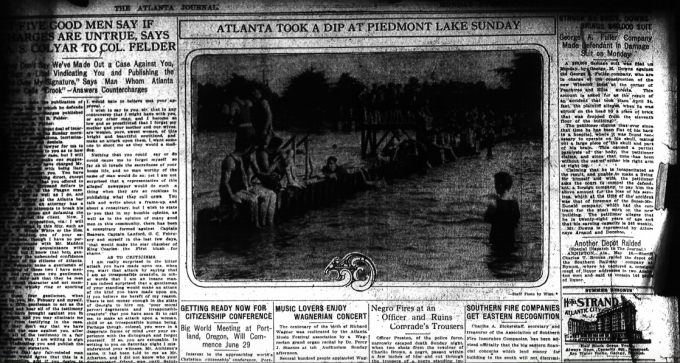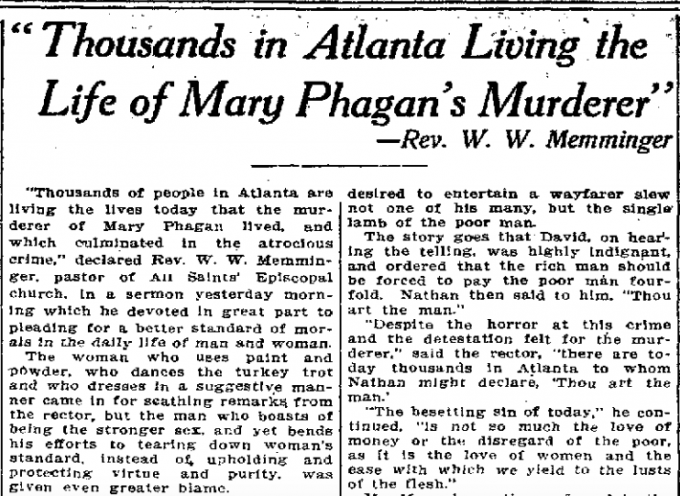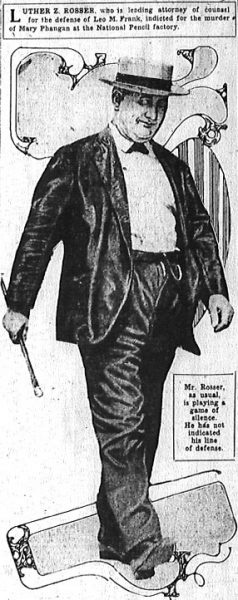
Luther Z. Rosser, who is leading attorney of counsel for the defense of Leo M. Frank, indicted for the murder of Mary Phagan at the National Pencil factory. Mr. Rosser, as usual, is playing a game of silence. He has not indicated his line of defense.
Another in our series of new transcriptions of contemporary articles on the Leo Frank case.
Atlanta Georgian
Tuesday, May 27th, 1913
What will be the defense of Leo M. Frank when he is called upon next month to answer to the charge of strangling little Mary Phagan?
With the confident announcement of the police Monday that they had completed a case against the factory superintendent that was as conclusive as it possibly could be without the testimony of actual eyewitnesses of the crime, this question naturally is being asked to-day by everyone who has any interest in the mystery, and that means practically every person in Atlanta.
The people will not get their answer from Luther Z. Rosser, the close-lipped and able attorney of Frank, until the trial actually begins. But even at this early date, when only the vaguest of hints have been given as to the course that will be followed in the battle to free Frank from all suspicion, it is patent that there are many openings offered the defense for attacks upon the theories of the State.
Burden of Proof on State.
Those who are close to the daily developments in Atlanta’s baffling murder mystery and who venture to predict the line of defense that will be offered are bearing in mind that, in the first place, the great burden of proof is upon the prosecution and not upon the defense.
It is absolutely necessary, due to the protection with which the law has hedged everyone under suspicion of crime, that the State in some manner, by some piece of evidence, connect Frank directly with the crime or establish his connection beyond a reasonable doubt.
Until the State is able to do this, Luther Z. Rosser may rest on his oars if he so desires. Leo Frank is innocent this moment in the eyes of the law. His innocence does not need to be proved. It is presumed. Continue Reading →

